Why is Squid Game such an international success?
by missvictrix
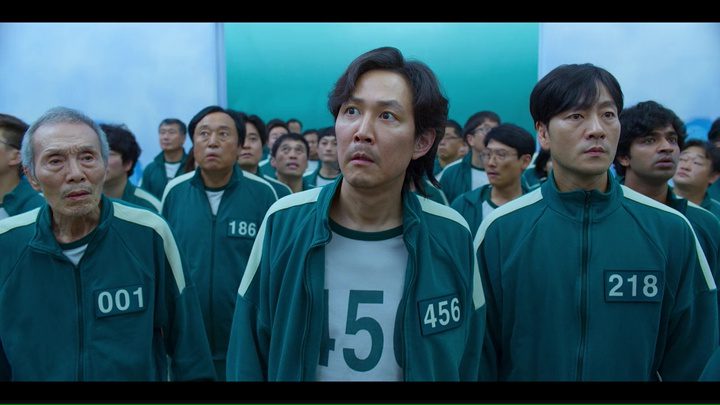
Over the past few weeks we’ve seen Squid Game go from Netflix’s latest original Korean show, to a worldwide sensation. It doesn’t sound like anyone expected the drama to perform quite as well as it did, and I, for one, didn’t expect it either. Gone are the days of trying to force co-workers to watch Kingdom and suck it up when it comes to reading subtitles; now, everyone from a local waitress to out-of-touch friends are asking me, “Have you seen Squid Game?!”
Blowing up in the South Korean market — or even Asia more broadly — is one thing, but Korean content going this wide is almost unheard of. The last time we saw something similar was with Bong Joon-ho’s 2019 Oscar-winning film Parasite. Interestingly, the smash hit film did pretty much the same thing that Squid Game is doing: invading entertainment media (especially Western media), and opening up loads of conversations. Those various conversations — whether you’ve been seeing them, reading them, or having them yourself — are what we’ll explore here.
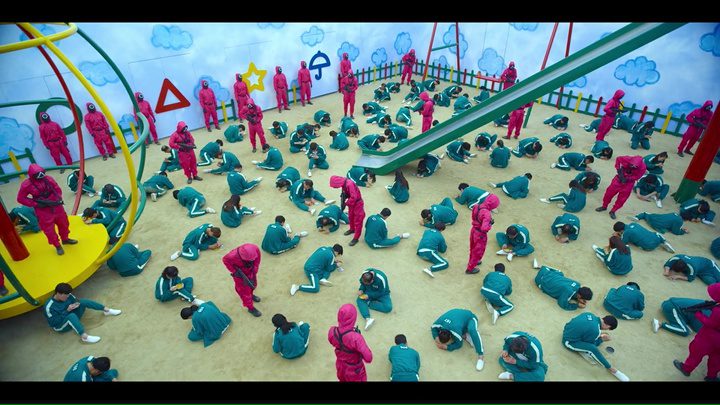
Before we look at Squid Game’s success more broadly, it’s important to warn you first: this piece isn’t looking for any one answer, or even arguing for one. In fact, I’m not sure if there is one sole reason why Squid Game took off the way that it did. Instead, it seems like its success was caused by a combination of factors.
The actual content is the main draw, for sure, but there are other variables that have to line up for a success like this — things like timing, accessibility, word of mouth, and maybe even a little luck.
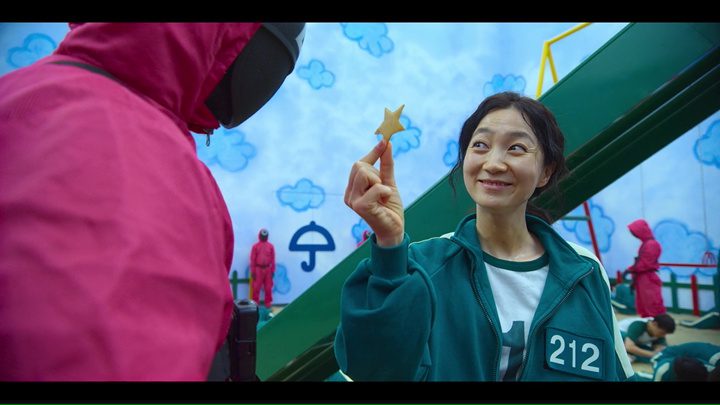
Think of how long K-pop groups were trying to hit it big in the U.S., only for BTS to finally be the group to get it done. I wouldn’t argue that BTS is demonstratively better or worse than comparable K-pop groups out there (though the fandom might argue with me there) — there was just something about them. The planets lined up, and now you can find BTS merch at your local Target. It’s the same with Squid Game. Right time, right place.
But that’s just one part of the equation, and surely there’s more to the success of Squid Game than just right time, right place — there’s also the cross-cultural nerve that it has hit. And this phenomenon is the most interesting part of Squid Game’s success.

Once Squid Game hit Western media full force, along came piles of articles and editorials claiming to explain why the series became a global sensation, and then explaining their reasoning in great detail. While there’s something to be said for Western media trying to explain why a drama series out of South Korea hit home for them, can they really know so easily? Can we really wrap up a drama’s worldwide success just by looking at it through a single lens, or distilling it into a single component that explains everything?
In trying to explain the phenomenon of Squid Game’s success, most go straight to the thematic content. We’ve seen explanations that the powerful dialectic of rich versus poor, and elite versus plebs, was what made the show resonate so much. We’ve even seen articles that defend the terrible line-delivery of the English speaking cast, convinced it’s a narrative choice meant to pack even more of a punch.
Just these few small examples show how deep it’s possible to go when trying to suss out Squid Game’s success — and that’s not a bad thing. Stories are powerful because we draw meaning from them. I’m a firm believer that you can find a message that speaks to you in any story, no matter how silly or how serious — but really, much of that is subjective. And if we’re going to figure out Squid Game’s international success, should we use subjective or objective means? Or maybe both?
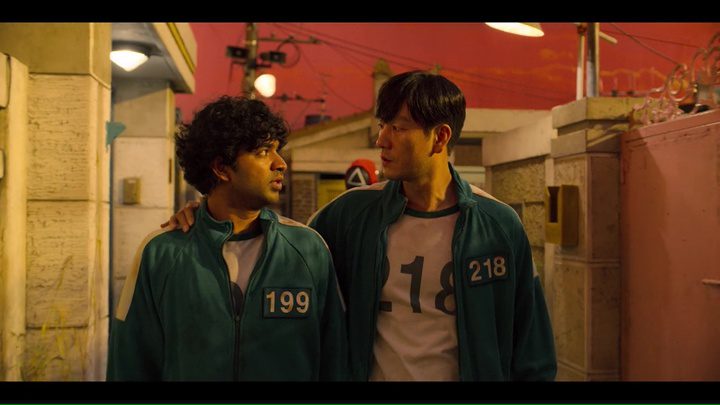
We can’t talk about Squid Game’s success without talking about Netflix’s role in it, and in Korean content more broadly. When Netflix entered the Korean content game, it was clear they were playing by different rules. As a streaming service, and independent of the South Korean broadcasting structure and rules, they were able to create content that aligned more to their company ethos than what viewers expected to see on KBS, or even OCN.
Here in dramaland, it’s safe to say we all have different responses to Netflix’s foray into Korean content (and all the other competing streaming services that are cropping up as we speak). While some mourn the dramaland that once was (with its chaste, predictable, and yet delightful stories), others welcome this new, refreshed lens on K-dramas, and the space to experiment with more edgy storytelling methods and content. Whichever side you’re on (or perhaps you have a foot in both?), it’s obvious that the drama landscape is changing with the times.
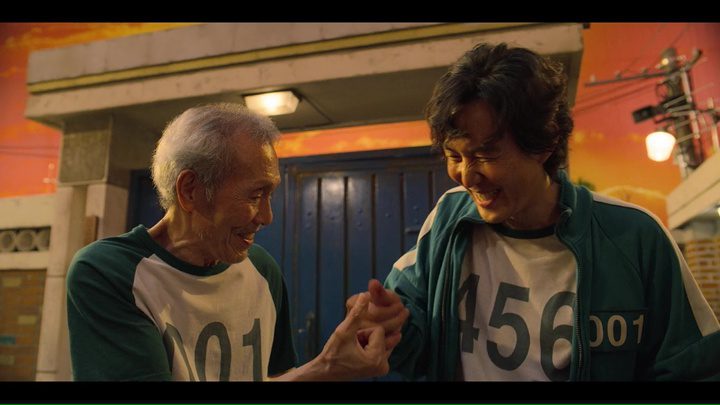
Getting back to the idea of the many variables that came together for Squid Game’s success, we also have to think about access. Netflix not only offered viewers a fresh take on Korean TV, but made it incredibly accessible.
With over 200 million subscribers world-wide (as of mid-2021), that’s not only a lot of eyeballs, but a lot of eyeballs that only have to click “play” on their screen. It’s a big difference compared to what looking for subbed K-dramas was like only a handful of years ago. You don’t have to be an Internet sleuth with ironclad anti-virus software anymore; Netflix is basically everywhere.
Stitching all of these ideas together, we get something of a bigger picture that might explain Squid Game’s success: Netflix’s content speaks to today’s zeitgeist (and even works to form it), it’s is easily accessible to tens of millions, and the story is rich with room for interpretation and message.
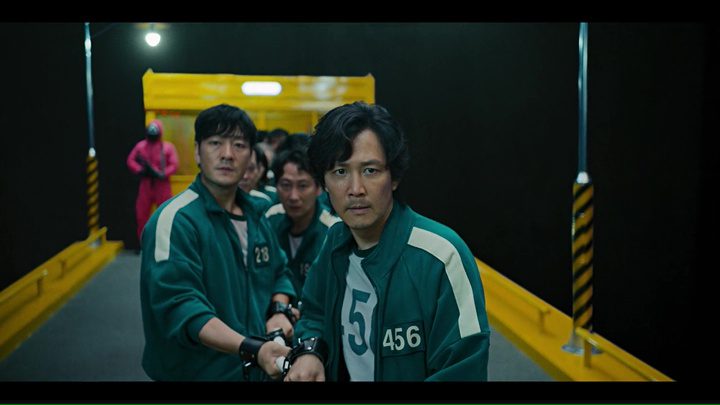
All these factors coming together to inform Squid Game’s success makes sense to me, and each one checks an important box, but there’s one more thought to add to that mix, courtesy of Occam’s razor. This theory purports that the simplest answer to a question is always the best one, and that got me thinking about Squid Game in a different light.
Rather than delving into how streaming media is impacting content, or how the story of Squid Game gives so much room for people to analyze and English major the hell out of it, what if there was an even more obvious explanation? It’s so simple, in fact, that it’s easy to forget about.
What makes a TV show or a movie, or anything else, explode like Squid Game did? The entertainment factor. There’s nothing more simple that can unite the interest of people from all parts of the world, and from different cultures and creeds. Each of these people found Squid Game entertaining. In other words, the story was compelling, the storytelling was well-executed, and they got out of it what we (as humans) crave from a story: catharsis.
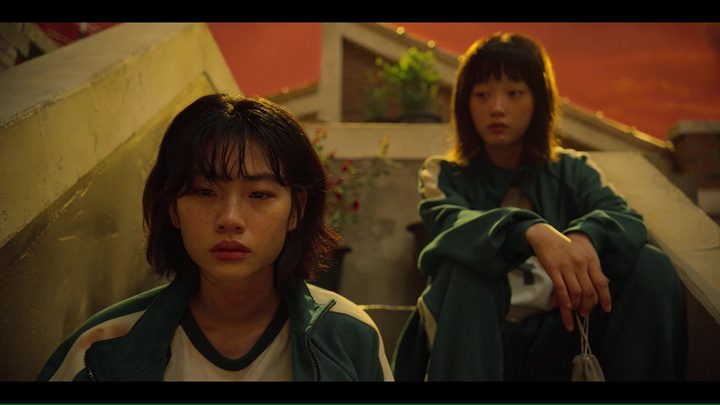
Turning from the question of why Squid Game became the global sensation that it did, the next question is: what comes next? I don’t know about you, but this definitely feels like a turning point in Korean content. With millions of new viewers, some watching their first subtitled drama, and some watching their first Korean drama — all eyes will be on what comes next.
Veteran actors from the Squid Game cast got a huge international boost to their already-successful careers, and the rookie actors sky-rocketed to fame. While their careers, with a little careful management, seem primed for international success, there’s also the question of K-content more broadly.
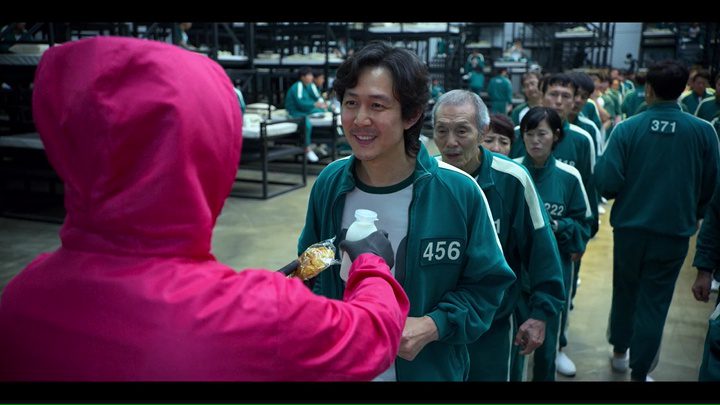
We will, without a doubt, have shows racing to become “the next Squid Game,” but what’s even more curious is how the success of Squid Game will impact future content and content creators. For the first time, perhaps, we’ve witnessed how wide Korean dramas are capable of traveling. The question, then, is how hungry viewers are for more.
What will the aftermath look like? Will we have legions of new K-drama fans, itching to sink their toes deeper into dramaland? Will we have a bigger worldwide appetite for non-English content? Will the Hallyu wave hit an all-new peak? Though it’s hard to predict the future of dramaland and Korean content from where we’re all sitting right now (as devotees, Beanies, and consumers), I think we can all agree that change is in the air.
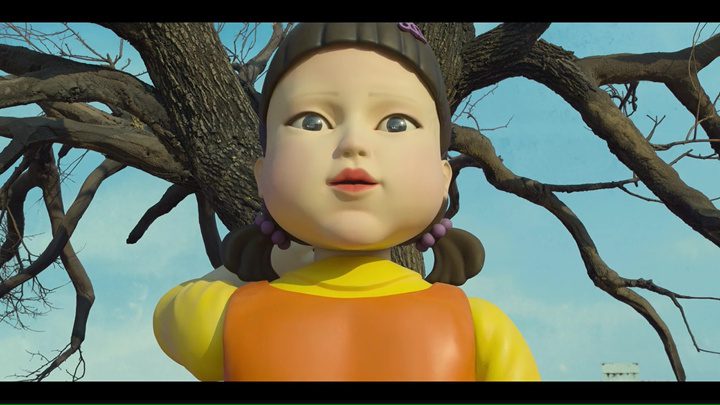
As a fan of K-dramas and K-content for over a decade now, it’s been particularly strange to see Squid Game explode like this. And it’s been ever harder to hold back my more emotional response — something like the drama version of “Get off my lawn!” It’s hard not to get territorial and explain, for example, that we’ve liked Wie Ha-joon since his early Pretty Noona Who Buys Me Food days, or that there’s already been a better version of Squid Game out there for years (*ahem* Liar Game).
But at the same time, holding back my inner (slightly uppity) superfan, it’s also exciting to think about the floodgates opening up and letting in legions of new fans — or even just interested viewers. Put simply, more eyeballs means more money and attention poured into the industry, and with that comes new opportunities for our beloved PDs and screenwriters and actors to create even more amazing content for us to enjoy.
Whether you’re on the Squid Game train, or got off at the first stop and ran for the hills, there’s still something to be said for the impact it’s had. While we may never know the exact moment that Squid Game flipped that invisible switch and became a global sensation, what we do know for sure is that it’s a watershed moment for Korean content. Let the games begin!

RELATED POSTS
Tags: Anupam Tripathi, featured2, Gong Yoo, Heo Sung-tae, Jung Ho-yeon, Kim Young-ok, Lee Jung-jae, Lee Yumi, Oh Young-soo, Park Hae-soo, Squid Game, Wie Ha-joon


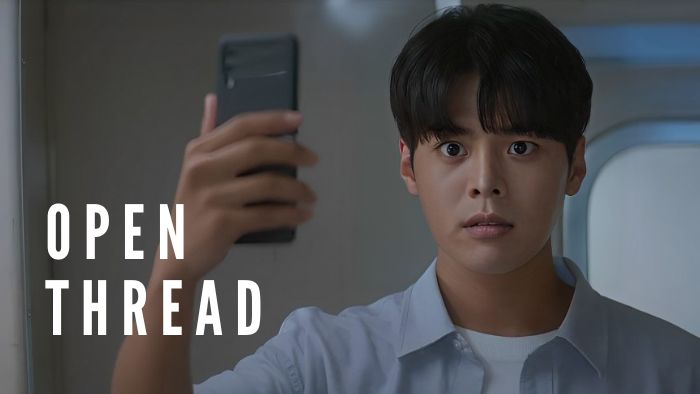


![[Cast Away] A conwoman is possessed by an upright politician](https://d263ao8qih4miy.cloudfront.net/wp-content/uploads/2023/09/castaway_header1.png)

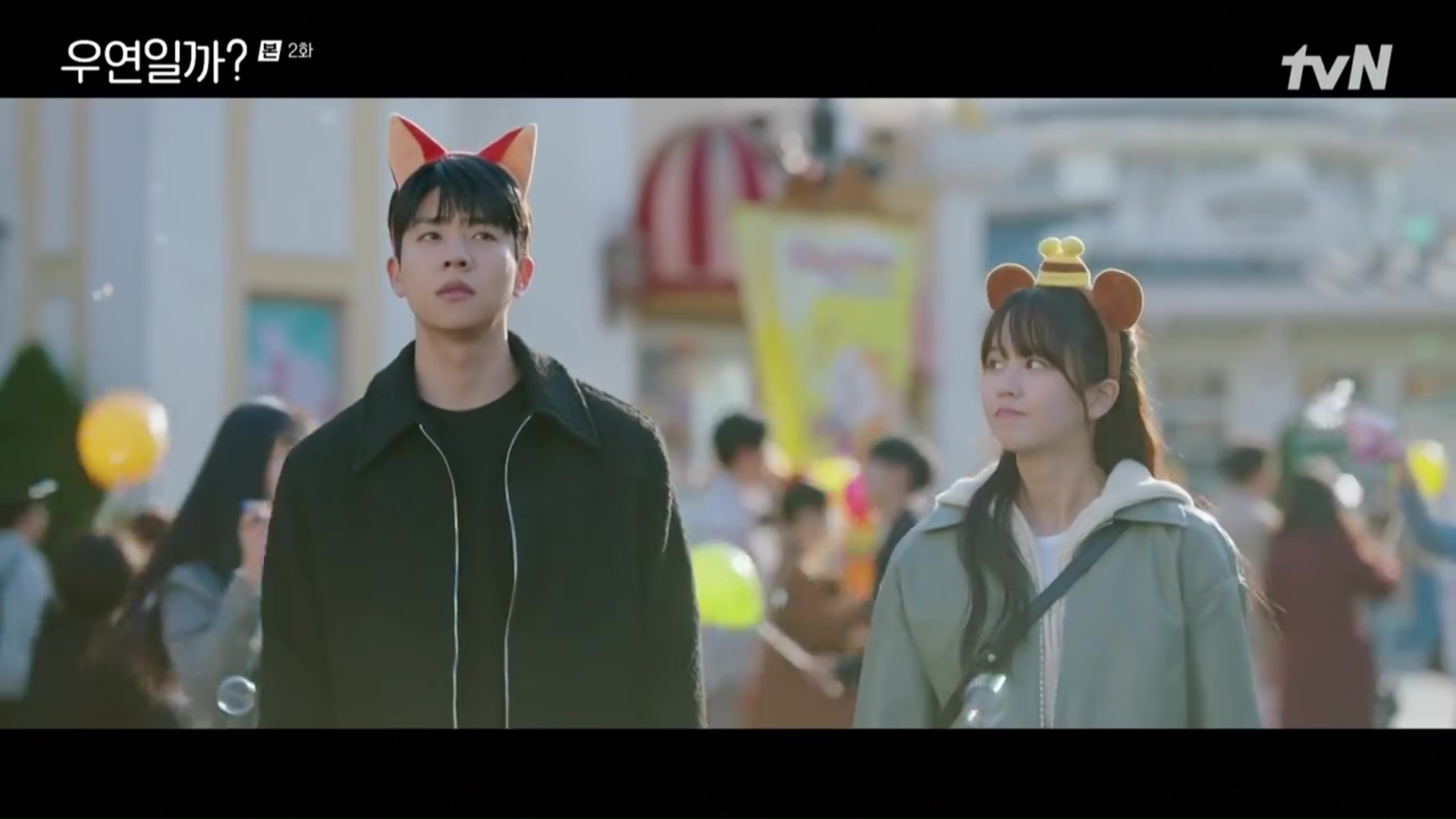
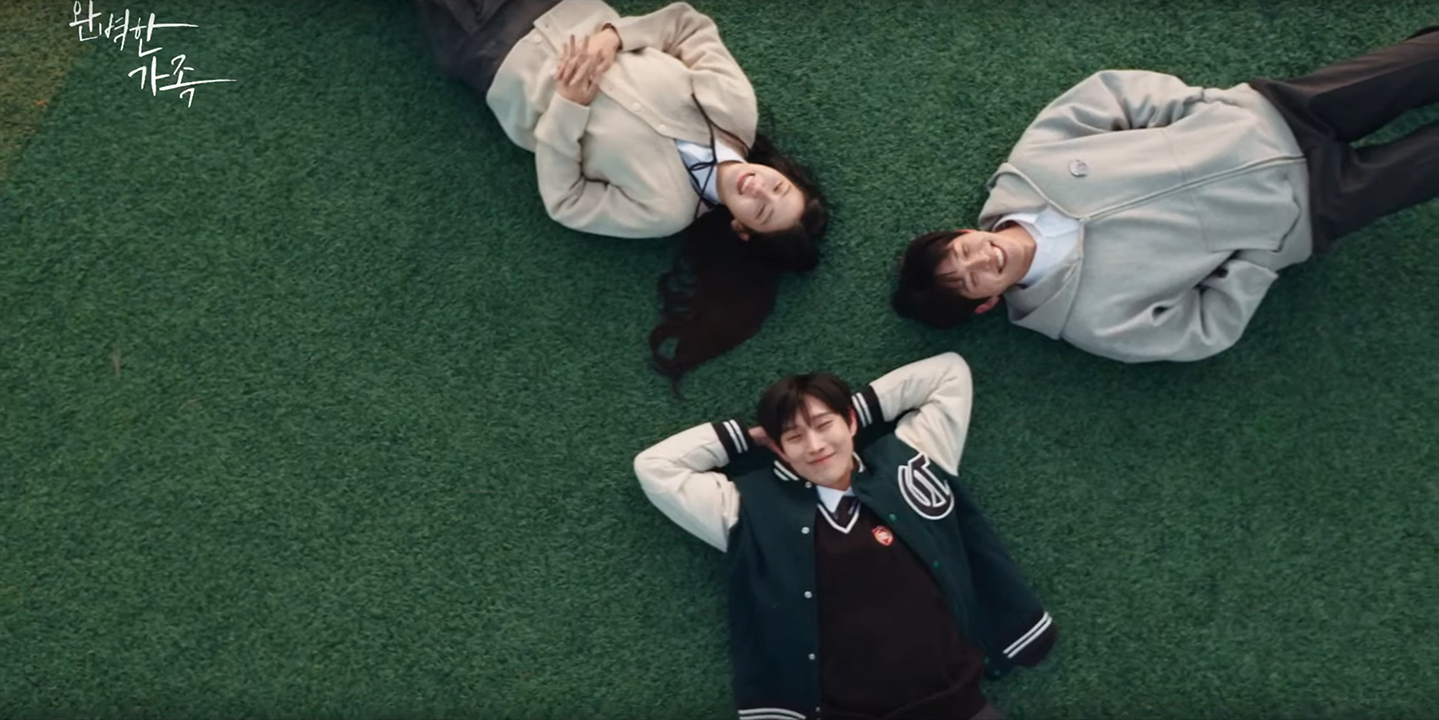

Required fields are marked *
Your email address will not be published. Required fields are marked *
1 immawish
October 6, 2021 at 11:18 PM
I think the right place at the right time argument is so true yet also I think not only that Squid Game reached wider audience (thank you netflix) but also it does feel like it's made for wider audience.
Tho I do agree with the argument on how Netflix basically butchered the dialogues (matter of factly, I think it's not only on Squid Game but also every show they sub, even the romcoms on the lighter side) I still doesn't think it excuse some dissapointment. Yes, the dialogue in korean sounds much better but story wise..... I don't know.... I just feel like it didn't leave any impression...
Also i think another reason that it blew up because it is rich of puzzles and symbolism which viewers can talk about and take a part of, i mean everybody LOVES that
Required fields are marked *
alasecond
October 7, 2021 at 3:06 AM
My view two things:
1. Covid and its effects - a sad drama i doubt will garner ratings. With the amount of pent up frustration, dramas that can incite an excitement are bound to garner eyeballs
2. Slasher theme specially this genre just seems to have a knack with humans - death note (deaths), battle royale, wolf in the village (or mafia if you will), hunger games...
These kind of slashers have mostly been a hit.. i don't know what does that tell us about our society
3. Its been a long time since a good movie/content came out within this genre
****************
overall, squid games is overhyped. But, it is a story well executed with funky colors in the background and morbidity in your face
Required fields are marked *
alasecond
October 7, 2021 at 3:07 AM
and forgot.. Liar games..
(all japan if you think about it)
Required fields are marked *
Magii
October 8, 2021 at 10:22 AM
I'm freeloading of this comment since its the top comment but I just wanted to add something to what the post mentioned about invading specifically western media. I'm not sure if invading is the right word because we never refer to western media as invading other countries media its just 'mainstream' entertainment when we refer to 'western' media but the thing is this 'non mainstream' media has actually already been mainstream in several countries so it isn't exactly invading western media or any country's media for that matter. It has always been there and slowly grown bigger and more visible like colored people in 'western' cinema have always existed but not acknowledged until much later. Its the same with Kdramas its becoming more visible and more than right time right place its more of a its finally time scenario. Kdramas have been huge throughout most of Asia for several decades and as the internet got faster, cheaper and easier the parts of the world that had been living in a silo has finally stepped out of their over saturated 'western' content to realize there's a whole world of much more diverse media out there just waiting to be explored. Squid Game isn't exactly the first either because Crash Landing On You did lay a major groundwork for Netflix Kdramas and Sweet Home helped bring in more interest so by the time Squid Game came people had already started to warm up to the idea of Kdramas and while I personally don't think this is the best Kdrama I don't think it ever needed to be. It wasn't ever about how good the drama is it has always been about how willing are people to step out of their comfort zone. The advantage that Squid Game seems to have is the genre which is an interesting mix of dark themes with bright colors which is twisted but fun. Also since this drama is very similar in theme to movies like Hunger Games and Battle Royale which have also been very popular worldwide it might just have clicked on the right notes. Sorry for hijacking this comment for this long commentary.
Required fields are marked *
2 KS stuck on 🥰 Aegiya KHAAJA🥰
October 6, 2021 at 11:25 PM
i hv yet to watch it (an am not sure if i can handle knowing it has blood and gore)... but i am happy that people around started watching and talking abt Kdramas in general when my attempts to make them watch failed in last many years..
so as Kdramas devotee its a good thing without a doubt.
and thanks for sharing this lovely article abt Squid Game's success.. it will help me decide to watch it.
Required fields are marked *
3 dramalover4ever
October 6, 2021 at 11:48 PM
It's good storytelling and entertainment for sure. We were made to care about the individual players because we'd been introduced to them early on. Another element is the suspense in the simple games when the stakes were so high. It appealed to a younger demographic too, and I think they are tuned into games and life and death competitions. In addition, games are allegories of the game of life, and we saw what happens, even when everyone starts on an equal footing (purportedly). It also had the feel of being a microcosm of rl in an experimental way. Then there was the humanness of the characters, for good and bad. There was warmth too. It had heavy moral tones by the end, addressing the question of whether we as individuals bother about others who are in difficulties: is it everyone for themselves or are there any, or even one or two, who would care to reach out to help. And the thing I love most about kdramas- the full spectrum of emotions were represented.
Personally, the violence almost stopped me watching, but I had to watch to see what was so compelling about it. I only hope people now discover some of the really wonderful dramas that are out there.
Required fields are marked *
emsel
October 7, 2021 at 8:25 AM
This comment serves no purpose in regards to the article or your take on Squid game, but I just wanted to say, I like your one liner about Kdramas "Full spectrum of emotions" 👏
Required fields are marked *
4 Doppelganger
October 6, 2021 at 11:51 PM
I wrote this comment in another post and I believe it applies here as well:
I find the handwringing by kdrama viewers over Netflix "polluting" kdramas to be wholly misplaced. Netflix is creating Korean shows for the global audience, not for the Korean audience. Those are two different audience groups with separate tastes. Netflix KR's original series are so different from your classic kdramas that they should be thought of separately. Regular Korean networks will keep churning out classic kdramas for the purist viewers.
3 more thoughts:
1) Netflix is now the mechanism for the Hallyu wave, and it is able to push Hallyu to a scale it wasn't able to achieve before, which is GLOBAL instead of just Asia. The South Korean government should be giving Netflix some tax breaks or something to show appreciation.
2) I don't think it's a given that there will be legions of new kdramas viewers, since again, Netflix KR and the classic kdramas are night-and-day. (Can't imagine Squid Game viewers going for stuff like Yumi's Cells or Dali & Cocky Prince). You might have a subset start to dip their toes further into the kdrama territory.
3) Netflix has disrupted the dynamics of kdrama celebrity. Unlike domestic channels, Netflix doesn't rely on casting idols or big names in order to get viewership and PPL deals. Netflix has the power to MAKE superstars overnight, so all it needs is good script, directing, and people who can act. I wonder if domestic channels are soon going to have to compete against Netflix for actors, writers, directors, and producers. If I was in the industry, I would prioritize a Netflix deal because a) it pays well, and b) one good project and I'll be looking at global superstardom.
Required fields are marked *
KimDewdrop
October 7, 2021 at 12:19 AM
Vincenzo is there to keep their feet stucked.
Required fields are marked *
Doppelganger
October 7, 2021 at 9:29 AM
Comment was deleted
Required fields are marked *
beffels
October 7, 2021 at 4:11 AM
I think you’ll find that the local content will also change - more slowly, sure, but the viewers will leave for streaming services if they don’t.
I don’t think it’s purely the influence of Netflix or any individual streaming service and I don’t think it’s necessarily a terrible thing. Some of it is just modernizing and would naturally happen - the internet just speeds it up.
Required fields are marked *
lynnB
October 8, 2021 at 8:07 AM
I agree with Netflix's intent to create global Korean dramas. It's interesting you mentioned Yumi Cells. From the time I watched the first episode of Yumi Cells I regretted that it was not available on Netflix. I think it's success would have been reminiscent to that of Inside Out's global appeal. Especially in light of all the attention mental health has received during covid.
Required fields are marked *
HC
October 29, 2021 at 3:50 AM
(Sorry that this isn't related at all to Squid Game but) I was just watching Kim Eun Hee's interview on You Quiz where she talked about when she had the idea for Kingdom way back like in 2011, she didn't think it could have been made because it was too unorthodox, too gory, and too expensive for any of the mainstream TV networks to agree to produce it.
But when she spoke with Netflix, that was when she realised that it might actually be possible. And the rest as we all know is history.
Hearing that made me wonder how many radical, controversial, bizarre script ideas never saw the light of day because they simply didn't fit the mould. If there are avenues that give writers and producers more creative freedom, and thus offering us more variety in our drama diet, it's a win-win in my opinion!
Required fields are marked *
5 Mike
October 7, 2021 at 12:14 AM
My theory about why Korean TV has become popular is the Korean word 'han'. Han fits the zeitgeist of the moment. Han is on display in Squid Games.
Required fields are marked *
6 KimDewdrop
October 7, 2021 at 12:23 AM
In my country Nigeria here, the fan fever is really high. Some of my friends who I could have sworn will only watch anything Korean in their next life are filling my status and Tiktok with their own version of Squid Game.
To my own surprise, I still haven't watched it yet. I don't really know what's keeping me from watching but I love the fever it's creating in my country.
Required fields are marked *
debbie
October 7, 2021 at 3:50 AM
Nice to see my fellow Nigerian.
Required fields are marked *
KimDewdrop
October 7, 2021 at 5:08 AM
Wow, I never knew I had a fellow in dramabeans here. It's really nice meeting you.
Required fields are marked *
Queenie_elizabeth
October 7, 2021 at 7:49 PM
You should watch it sis
It got me hooked till the very end. Trust my fellow Nigerians to create their own version on tiktok,lol.
Hoping for a season 2 though
Up naija 😍
Required fields are marked *
Esther
October 8, 2021 at 2:37 AM
There’s a lot of us here… I was kind of excited and rolling my eyes at the same time.
The people who shades us at every chance they get, are now doing more than us🤦🏽♀️
Required fields are marked *
KimDewdrop
October 8, 2021 at 7:27 AM
Really really excited to see us all here. ❤️❤️😘
debbie
October 8, 2021 at 7:10 AM
Same here. Been on this platform since 2011. It's my first time knowing Nigerians are here.
Required fields are marked *
YemYem
October 9, 2021 at 3:57 AM
I am also Nigerian and it is nice to see my fellow country people here.
I have been an avid Kdrama follower for years now and all my friend know this. They mock me for my interest and I have learnt to take it in good stride so it was funny and really weird for me to see so many of them talk about Squid game and how great it is.
I want to hope this is what will make them start watching Kdramas but I know Nigerians and know how fast they move to new trends. Still it is nice to see a Kdrama related meme on popular IG pages and on on my whatsapp status.
Required fields are marked *
7 Kurama
October 7, 2021 at 12:41 AM
I think the strength of Squid Game was its visual, it was really appealing plus a short story made easy to binge.
Luck always is a factor.
But for me, Netflix's gems were Move to Heaven and D.P. this year.
Required fields are marked *
dramalover4ever
October 7, 2021 at 12:50 AM
Striking sets, especially the colour. I agree re DP and Move to Heaven.
Required fields are marked *
drawde2000
October 7, 2021 at 1:55 AM
Yes and Yes. Plus that huge doll. 😃
Required fields are marked *
transient
October 8, 2021 at 1:36 AM
The colorful set for the games reminds me of Battle Royale, where the female presenter cheerfully announced the rules of the game, as if the participants are not playing with their life at stake there
Required fields are marked *
OLakes
October 7, 2021 at 1:47 AM
Move to Heaven is one of my absolute faves of 2021.
Required fields are marked *
miss h
October 7, 2021 at 10:34 AM
It's definitely my pick for best drama of the year.
Required fields are marked *
RK123
October 8, 2021 at 10:46 AM
Loved Move to Heaven so much! Easily my favorite drama of 2021.
Required fields are marked *
debbie
October 7, 2021 at 3:48 AM
Comment was deleted
Required fields are marked *
immawish
October 7, 2021 at 9:02 AM
Move to Heaven was great, I have yet to watch D.P but for me the sharpest netflix original is still Extracurricular it's just so well crafted.
Ps. Kingdom excluded bcs i haven't watched that one too, im too freaked out lmao
Required fields are marked *
beffels
October 7, 2021 at 5:16 PM
The visual makes it easy to spot in a sea of scrolling wondering what to try next, and easily recognisable when people post about it.
Required fields are marked *
Dionne
October 11, 2021 at 10:15 PM
I too loved Move to Heaven and D.P! For me Squid Games was too predictable. I pretty well knew what was going to happen after the first set of killings. I watched the first episode, part of the second and last episode. I got bored.
Required fields are marked *
8 Jingbee
October 7, 2021 at 12:51 AM
IMO, Netflix's marketing strategy also made a difference. They use a variety of media (not just online) to reach a wider audience who otherwise would not have otherwise bothered. For example, Netflix Philippines placed an actual RedLight GreenLight doll , complete with rotating head and scary red eyes in front of a mall just across a pedestrian lane. It became a curiousity as people started posting photos, and then all of a sudden, it became a must-go spot, while still observing social distancing of course. They also placed a lot of local content mixed with scenes from the show, in you tube, a lot of posters , etc. Of course the actual show itself deserves the credit but first, people need to get curious, and that is what effective marketing could influence.
Required fields are marked *
transient
October 8, 2021 at 1:38 AM
Netflix Philippines is so cool! Whomever thought of putting that doll should be given a raise
Required fields are marked *
9 antonio83
October 7, 2021 at 1:27 AM
The success is due to the fact that Squid Games is a very Westernized product in terms of (lack of) values. While many fans of Korean or Chinese dramas fail to admit it, what drives us to love non-Western dramas is the fact that the stories are imbued with a moral sense akin to traditional religious themes.
Celebration of the family, exaltation of the difference between men and women and mutual completion, purity and innocence, honesty and moral rectitude, respect for parents. This is what many of us have found in kdrama.
Unfortunately, today's drift of Western products tends towards nihilism, violence, pornography and depravity. It is obvious that many are attracted to it. What I think is that if a lot of people healed My Mister or even What's Wrong With Secretary Kim then they would stop being attracted only to Western content. But it is obvious that the pendulum is not facing this direction.
Required fields are marked *
alasecond
October 7, 2021 at 3:10 AM
i would argue otherwise..
genre itself is very japanese.. they have honed this art and it has been copied by many
so i don't think it is a particular society thing.. but more at humans as an animal species itself, that connects with the theme
self preservation
survival instinct
who is at fault here.. ones playing the game and killing or being killed Or the rich
the thrill and excitement that dissociates itself from morality (sometimes you do things just because it is exciting and not for a reason)
is this serial murder case?
Required fields are marked *
Jance
October 7, 2021 at 8:09 AM
I think there are similarities between Japan and the West. There’s a kind of blurred lines immorality which violent shows from both explore - though in my experience Japan’s are far darker…
Squid Game comes across as Japanese genre to me. (Maybe because there are already so many dramas like this from Japan)
Then again, it’s not a million miles from The Hunger Games either…
Required fields are marked *
alasecond
October 7, 2021 at 9:17 AM
you are right..
Battle royale is the famous one
the mafia series .. that is so addictive and disturbing..
so MANY MANY mangas
Required fields are marked *
Kelly-k
October 7, 2021 at 11:47 AM
This is exactly why I couldn't and still can't watch this show... When it came out I had just marathon five different Japanese versions of this exact genre and I was tired...
But everyone else just seem to discover it...
Required fields are marked *
Doppelganger
October 7, 2021 at 10:12 AM
This is such a farcical and sanctimonious generalization of Western dramas. Cdramas are imbued with a heavy-handed morality because the government dictates it. Both Korean and Chinese cinema (before CCP tightening) tangled with violence, nihilism, and despair. Those aren't Western things.
Western tv shows cover alot of range and depth beyond just dark themes. Time to break out of your box.
Required fields are marked *
ElKwesi
October 7, 2021 at 11:44 AM
I think people put more on Netflix for the direction of they're shows then they should. From what I read Netflix is pretty hands off and just sign checks. Whatever Korean content is produced is coming straight from the Koreans. People think kdramas are the way they are because of higher morals & societal values when it really just comes down to censorship. Korean TV and radio is still censored, that's why there's a big difference between they're tv shows and movies.
Required fields are marked *
antonio83
October 7, 2021 at 1:48 PM
Those who consider yourself censorship, others may consider it correct education. For example, many in my religious community appreciate kdramas precisely because of their traditional values and the absence of depravity, pornography, nihilism and disrespectful behavior. In kdrama there is a lot of morality (and there is no bad morality!)
Required fields are marked *
nahaluk
October 7, 2021 at 4:10 PM
It seems to me that haven't watched a single Korean movie....
And those traditional moral values you are praising, serve only men, not women or children. Of course your church is going to love them....
Required fields are marked *
mugyuljoie is preciousss
October 7, 2021 at 4:31 PM
"Correct eduction" is reminding of re-education camps and other horrors.
I'm glad that K-dramas are actually starting to include groups of people you enjoy seeing marginalized (based on your comments).
Required fields are marked *
mindy
October 11, 2021 at 1:33 PM
Hometown Cha-Cha-Cha makes THREE major k-dramas this year so far with lesbian characters! Year of the Lesbians!!!!!
mugyuljoie is preciousss
October 11, 2021 at 11:27 PM
@mindy We also had a trans person who was ultimately treated with acceptance and respect.
Yn00na
October 8, 2021 at 3:49 PM
The "correct eduction" gives me a shiver. "Correct" based on what standard and whose agenda? The world is diverse and of wide spectrum. Having such narrow view of what is/isn't acceptable makes a person life small imho.
Required fields are marked *
antonio83
October 11, 2021 at 7:56 AM
"Correct" on the basis of a moral compass. Celebration of the family ok, depravity nihilism and pornography no ok.
hodhod96
October 9, 2021 at 10:56 PM
My terrorist government in Iran loves Korean dramas for the same reason. I hope kdramas change for the better so you and people like you stay away from them and other people can love kdramas without sharing an interest with you people.
Required fields are marked *
soulsearch12
October 9, 2021 at 11:02 PM
Ironically, there use to be more freedom/lax in K-dramas in its inception up till the 2007 enactment by The Television Committee in Korea. That's what made, K-dramas turn more conservative which is ironic b/c as it progresses it should be more free. Even Kim Sam Soon talks about abortion, wed lock, and pre-martial sex. Even an older drama called Bad Couple talked about the idea of surrogacy way before Oh My Baby did. Its insane is all I'm saying, older shows would also feature scantily clad woman in bikinis or mini skirts. Its really all down to censorship, due to criticisms from rogue/loud minorities clamoring for shows to get canceled/threatening them like they did for a wedding scene between two gay characters in Life is Beautiful (2010).
Required fields are marked *
Becky
October 7, 2021 at 2:21 PM
I agree with most of your remarks. I appreciate Korean dramas precisely because of the censorship aspect. I appreciate the "celebration of the family, exaltation of the differences between men and women and mutual completion, purity and innocence, honesty and morality, and respect for parents." Are they realistic? Probably not, but they do a good job of highlighting what we could strive for.
Are all k-dramas good? No. But those that are become unforgettable: My Mister, the Reply Series, Life, Misaeng, etc.
Netflix having more k-dramas allows me to be able to recommend more and more to my friends and family, who would never subscribe to Viki or another foreign site.
Required fields are marked *
OLakes
October 11, 2021 at 7:44 AM
So censorship is okay for you because it reinforces your ideal of what society should strive for, got it.
Required fields are marked *
antonio83
October 11, 2021 at 7:54 AM
No, I don't think there is any censorship in Korea. If you have opposing sources, you can link.
A culture that creates My Mister should only be celebrated and embraced.
Required fields are marked *
OLakes
October 11, 2021 at 7:59 AM
Her comment literally says:
ElKwesi
October 11, 2021 at 4:18 PM
When I wrote my comment I didn't really intend & expect a long discussion on it. I just wanted to show the practical reason kdramas are the way they are.
Alot of the things you like about kdramas I also like, even tho the opposites don't bother me either. I am not religious at all, but I respect people's religions and values. & don't think there's anything wrong with wanting things that align with it. We can have it both ways, having one does not take from the other. I just wanted to jump back in because I think people reacted to your wording of things, but I don't think you meant anything by it.
You are free to leave K dramaland
October 11, 2021 at 8:38 AM
So?? What's wrong with striving for an ideal society? Why not respect those who prefer to have this censorship instead of having YOUR ideals shoved down our screens? If your ideals are different and you don't like censorship in K dramas then why don't YOU go back to Hollywood or wherever it is you can find them. You might actually feel better rather than stirring the waters here. No one's pointing a gun to your head forcing you to watch K dramas, is there?
Required fields are marked *
OLakes
October 11, 2021 at 8:58 AM
Goodness, yes, why don’t I just fall in line, right? Let me get it straight: you’re essentially saying that it’s okay that SOME values are shoved down throats (I.e. yours) but not others (I.e. what you assume are mine). And I should just stop “stirring the waters” aka having an opinion because you don’t like my opinion.
My issue with the comment was actually not really the issue around “morality” or “values” - it’s with the idea that censorship is okay. Because if you value free speech, I don’t know how you can square that. How a certain subset gets to decide that for everyone, and then enforce it with a stick. If a certain way of life is so dang desirable, you’d think it would be a lot easier to convince people to live like that.
I could literally not care less about the values by which you choose to live your life. Truly and genuinely, I believe strongly that this is up to you to determine. Society has always debated, and I hope will continue to, as we evolve and move forward as one big, wonderful, messy and evolving world. I love kdramas of all types, and I’m able to stay calm and still enjoy them when I watch things that I may disagree with or may disappoint me because of this. Not everyone has to live like me. But maybe the other difference is that I also don’t feel the need to make everyone live like me, too.
Then quit complaining :)
October 11, 2021 at 9:58 AM
Funny how you bring up the free speech card when you put down people in this thread with your comment. It didn't look like you were going for a friendly debate with your first comment.
Required fields are marked *
OLakes
October 11, 2021 at 12:56 PM
What? Where did I tell anyone not to express their opinion or that they couldn't say what they wanted to say? Go for it! Free speech here, and free speech meaning governments don't get to put strangleholds on the media and entertainment - free speech for all!
I wasn't trying to light any fires, but I take the idea of censorship very seriously and chose to be direct - just like everyone else on this thread, too.
SMH
October 12, 2021 at 12:41 AM
I have to say, my sympathy goes to Becky for your ridicule on her comment. And I thought people on this were given more respect for opposing views and preferences. Apparently not. It's not like your comment would change her opinion or choices anyway. Unless by your comment you intended to silence her or those people with the same ideals. I certainly hope not.
Required fields are marked *
OLakes
October 12, 2021 at 2:47 AM
Comment was deleted
10 Jance
October 7, 2021 at 1:56 AM
I can’t help wishing it had been something more wholesome which had gone global. I end up feeling gloomy when stuff which goes viral is usually gory, scary or explicit.
Or am I being pessimistic?
Required fields are marked *
Wifsie
October 7, 2021 at 6:45 AM
Hometown ChaChaCha is doing extremely well too. Not at the level of Squid Games but it’s not shabby at all. That’s very encouraging
Required fields are marked *
alasecond
October 7, 2021 at 9:19 AM
busted did well too.. another thing with korean is that we have 2 staple variety shows that are popular across countries 1n2d and running man.. which are opening further doors to newer varieties/ actors' followup work
Required fields are marked *
beffels
October 8, 2021 at 1:41 PM
I’m really not sure why Busted did so well - I will watch basically anything with Lee Seung GI in it, but I couldn’t make it all the way through Busted 3 😅
Required fields are marked *
alasecond
October 8, 2021 at 7:01 PM
busted did well because of cast popularity, easy access through netflix, and new cotnent/variety genre (overall korean variety style will be new for most people getting into korean content)
**************88
But then busted was a poorly made show (cast acting is so off).. i'd be surprised if people go on to watch the next season after their first (whichever season that might be)
beffels
October 8, 2021 at 7:09 PM
@alasecond I did enjoy season 2 for the most part, to be fair, but season 3 was a disappointment
miss h
October 7, 2021 at 10:40 AM
Yes, it's doing very well, consistently in the top 10. I said below that I know four non-kdrama watchers that watched Squid Game, but I don't think they will seek out other k-dramas. I know someone who stumbled across Hometown Cha-Cha-Cha somehow, and she loves it. She asked me for recs for other k-dramas.
Required fields are marked *
welh
October 7, 2021 at 10:03 AM
The international staying power of CLOY is still remarkable. Later this month. Japan TV will air a new special about the series.
Required fields are marked *
11 neener ~ Inside the Magic Shop ~
October 7, 2021 at 2:35 AM
Totally agree about being territorial xD But I don't tell my friends about my opinion and keep my mouth shut. I'll let them explore Kdramaland on their own and if they seek some recommendations, won't hesitate to tell my faves.
I do feel excited on what this brings to the K-industry and it looks like the filming aspect is also different (Na PD's Game Caterer with the PDs) as to how diff it is, no idea but hopefully for the better. For both the casts and crew.
And then about the subtitle part, may Netflix fix or give more time to their subbers to be able to bring out or closer to the context of what the drama really tries to convey. Considering the conversation that's going on, I can only hope.
Required fields are marked *
12 LT is Irresistibly Indifferent, Dame Judi
October 7, 2021 at 2:44 AM
One important element is I think the success of Parasite. It both primed an international audience to see Korean cultural product as quality entertainment - rather than its historical (and we know somewhat misplaced) image of crazed Makjang and shallow romcoms - and clearly resonated with people also tired of the horrors of late stage capitalism.
I can't explain (or even quite fathom) why Squid Game has had such an extraordinary cultural impact instead of, say, Extracurricular, which was the superior show. (Perhaps because on paper the story it's telling is much more straightforward and it can be more easily watched without deeper analysis).
Except that those things that make it quintessentially Korean happen to be things that also speak profoundly to the international audience that already embraced Parasite.
Required fields are marked *
alasecond
October 7, 2021 at 3:12 AM
i wonder..
its not that heist success brought something to spanish world, or dark's success did something for german content, or "jai ho" did anything for indian content....
I'd say OTT consumption has increased.. and exciting content is going to grab eyeballs
Required fields are marked *
LT is Irresistibly Indifferent, Dame Judi
October 7, 2021 at 3:27 AM
This comment brings up complicated feelings.
I do see your point. But in the case of Dark at least that was an almost-flawless masterpiece. Squid Game is definitely not and Netflix does have Korean masterpieces available: ones that are action packed as well. Kingdom is there with loads of zombies and a hefty dose of social commentary and, as I mentioned, Extracurricular (if you want to stick with critiques of capitalism).
Which I guess just brings us around to the original question - Why Squid Game? - and no closer to answer really.
Required fields are marked *
alasecond
October 7, 2021 at 7:15 AM
I honestly find kingdom over rated as well. Specially given a korean movie with Hyun bin released before that and it had almost the same storyline.
Squid game - its not because its korean or great drama, but because its genre has almost always been a hit with audience. Like i said in another comment , i think it is broadly two things:
1. Genre itself and past successes of similar content shows that at a much broader human specie level, this type of content makes people excited (death note too.. the main success isn't about L tracking kira.. but the killings.. there is quite a list of stuff in the genre - manga, drama, move, books)
2. Corona, 2 years of pentup frustration.. i would say anything that can bring genuine happiness and laughter OR something that can evoke an exciting way of releasing that frustration is going to get eyeballs. Squid game falls into later and with this colorful good background score makes it FUN
Required fields are marked *
alasecond
October 7, 2021 at 7:16 AM
One more thing about this genre.. People are excited by the killings.. but (complicated to explain) it is the wit of tricking others which keeps or creates that excitement ..
it is an interesting genre to be honest.. gore and wit and humour.. and you feel you are watching something smart :D :P lol
Required fields are marked *
Doppelganger
October 7, 2021 at 10:16 AM
I am surprised that people are surprised by Squid Game's success. Squid Games is really ACCESSIBLE. Death games have universally resounded with audiences since the Roman empire with their gladiatorial games. Squid Game's plot is straightforwards, the production value high, the set design well-done, and the characters easy to tell apart.
Kingdom is saeguk with zombies, and saeguk is a tall hill to climb for the global audience. Can't speak to Extracurricular since I haven't watched it yet.
Required fields are marked *
miss h
October 7, 2021 at 11:09 AM
I agree about the genre being popular and accessible. The drama is also extremely gif and memeable, which is a big deal these days.
Required fields are marked *
Kafiyah Bello
October 7, 2021 at 4:14 AM
I totally agree with you, everyone who knows me asks about Squid Game and I'm like it was a good drama, but there are far and away superior dramas, Stranger: Forest of Secrets always comes to mind. However, these are the same people who hyped Tiger King to be a phenomenon. So it was right place, right time, and luck of the draw. Also I think it was a good length, 9 episodes. Simple plot. So it was a thousand little things in the end.
Required fields are marked *
LT is Irresistibly Indifferent, Dame Judi
October 7, 2021 at 11:06 AM
Someone did refer to it as this year's Tiger King and there is, at this stage, a real FOMO effect going on. People are now watching it just because everyone else has watched it.
Required fields are marked *
egads aka Dame Maggie
October 7, 2021 at 5:13 PM
The thing with Stranger is that it's a more complex drama to watch and digest. And for someone with little to no understanding of some very important cultural norms it could be frustrating. Squid Game is in your face and easy to comprehend by design. The use of children's games means you don't have to work out complex rules like say, Liar's Games, but can instead focus on action and characters. Sure some cultural subtleties may be missed, but overall the concept is easily understood, the characters' motivations are relatable, and the pacing of the action maintains that thrum of interest.
Basically, what I'm trying to say is that viewers don't necessarily have to think real hard while watching Squid Game even if they are new to Korean entertainment. Stranger, well, that one needs a lot of brain engagement.
Required fields are marked *
wapz
October 8, 2021 at 11:02 AM
SG is vey easy to understand and predict. I thought that was a downside of the show but apparently it became a strength. Alongside that the visuals are eye catching and the trailer itself makes you curious to click. But the straightforward and simple setup helped spread it.
Required fields are marked *
Lixie
October 7, 2021 at 12:35 PM
You did explain it. :) Extracurricular is much harder to understand, it's more complex and asks difficult questions. Everybody can have many theories about Squid Game but it's easy to root for the main guy, at first he isn't nice but he quickly becomes likable and the faceless villains are all around us these days, everybody is feeling at least a little like we're all unwilling participants in some crazy game.
Required fields are marked *
dramalover4ever
October 7, 2021 at 1:56 PM
Totally agree with this
Except that those things that make it quintessentially Korean happen to be things that also speak profoundly to the international audience that already embraced Parasite.
Required fields are marked *
13 Aye
October 7, 2021 at 3:31 AM
When I started watching, I recalled that it was automatically a dubbed in English verison (the only one where this happened out of all the korean dramas I've watched on Netflix). I don't like things dubbed so I switched the audio back to Korean. But perhaps this helped get non-Korean speaking and none typical Korean drama watching fans to at least give it a chance in the beginning and then the story and everything else aa noted made them stay? I don't think it was the best out there but it was very entertaining so I understand why people kept watching. But perhaps the auto dubbed version was a contributing factor to help make that first step. Like how I don't like things dubbed, I know there are those who don't like reading subtitles so maybe the drama being dubbed played a big role.
Required fields are marked *
14 miss h
October 7, 2021 at 4:15 AM
I think timing definitely played a part in Squid Game's success. Five years or even two years ago I'm not sure if it would have taken off like it has as there is no denying TikTok has generated a massive amount of interest in the show. One of the reasons the Deadly Games genre is popular is the "What if I" factor that very much lends itself to social media.
I'd say people have found Squid Game to be well made and compelling too. Four non-kdrama fans that I know watched Squid Game, and it has been interesting to hear their reactions vs. the reactions of DB. On a whole, I would say Beanies response was tepid, but my real life peeps had strong emotional responses to the drama, very much caring about the characters.
I know there are strong feelings about Netflix on this site. I'm not worried about losing traditional k-dramas as those are the networks' bread and butter, but I do like that Netflix has offered a new frontier, where by all accounts, creators have more freedom. I think the resulting content has still been very Korean, but with themes more often seen in Korean films. I know the writer of Squid Game spent 10 years trying to get it made. I wonder if he ever considered turning it into a movie. It would have been a box office hit, methinks. Oh well, it turned out for the t, becoming an international success.
Required fields are marked *
chibi8535
October 15, 2021 at 12:14 PM
SG was s'posed to be a movie. It was initially conceptualized as one. The Director eventually turned it into a mini-series, cuz he felt he wouldn't be able to squeeze in all 6 games in a 2-hour format. Expanding the plot, meant side characters like Cutie-Cop. :D
Required fields are marked *
15 sungjong
October 7, 2021 at 5:06 AM
This article is spot on..lol especially with those of us who have been around for a decade and more...just three months ago I was asking my friends (forcing more like) to watch kdrama. I would go through my 150+ titles list to cherry pick the best ones, and feel so apprehensive that I'd give them an unfair representation of kdrama and they won't become fans. But wow, how the tide has turned...i find myself being like stay off my happy place. What if kdramas lose their essence (there has to be something) as they try to cater to a wider audience...on the other hand content and characters might become more diverse as we have seen in the last two three years. I do find myself acting uppity lol and saying things like I've been here since days of Dae Jang Geum and k***asian, m**sian and other god given websites
Required fields are marked *
16 Alluvial_Fan
October 7, 2021 at 5:42 AM
Thanks @missvictrix for bringing this discussion to Dramabeans. Like many Beanies I ceased mentioning Kdramas to my friend/colleague circle long ago. We are all aware that Korean content is always underpinned with a sense of humanity, as in "we're all in this together". While Squid Game is n ot my preferred genre I started watching by shear happenstance.
On vacation we stumbled on a tiny Korean take-away joint in a strip mall. The owner asked if I'd ever visited Korea and my response was no, but I was a superfan of K-dramas. She asked if I'd seen Parasite (twice in theaters) and then ordered me and her clerk to watch Squid Game.
Like many Beanies I like to dive deep so I watched two eps and then read every review or article, from critics, financial analysts and social commentary, that I could find online. The most illuminating to me was a discussion of "predatory capitalism" in a Salon piece by Melanie McFarland. https://www.salon.com/2021/10/02/squid-game-netflix-debt-predatory-capitalism/
I intend to continue watching one episode per day so I can discuss it with my nieces and nephews.
Required fields are marked *
dramalover4ever
October 7, 2021 at 2:55 PM
This is a superb article btw
Required fields are marked *
jennee
October 8, 2021 at 12:50 PM
I read this article when I was searching for articles about the show but lost track of it and couldn't remember which site published it. Thanks for sharing!
Everyone who's finished the series should try to search for the 27 minute Netflix Korea interview of the director, art director, and a couple of cast members of the show. It's on their YouTube page and one of the few interviews that have English subs. I also shared it on my fan wall. It's really good and provides some insight on the director's vision. Only watch it AFTER you finished the show though because there are spoilers in it.
Required fields are marked *
jennee
October 8, 2021 at 1:13 PM
Here's the YouTube link to the interview/ commentary (hopefully this works. Occasionally I find I can't post links in comments). https://www.youtube.com/watch?v=QjuB2eC7Mmc
Required fields are marked *
kadota
October 10, 2021 at 3:15 PM
"Being broke isn't enough, you see. In order to submit to the games, a person must also be broken." oof
Required fields are marked *
17 Mia
October 7, 2021 at 5:53 AM
I honestly believe, on some level, they anticipated at least a hit show in Korea. This is a series that stars Lee Jung Jae for starters (any further discussion would involve spoilers). The plot isn't all that fresh since there have been many versions of it since the mother of them all, Japan's 'Battle Royale', but after watching just the first ep of 'Alice In Borderland' recently, I believe a huge factor in the success of 'Squid Game' should go to it's art director. She created a visual spectacle with the show the likes many Korean dramas and Japanese ones never see. Netflix's investment in Korean dramas is another factor. I don't know if they would've been able to pull this show off without it. Most importantly, the drama was well cast. You're just going to take a show more seriously when the acting is solid.
The investment in Korean dramas was win win for both Netflix and the Korean industry and it reminds of the impact that 'Reply 1997' had on the Korean TV industry after it came out. So much change in the industry rests on the shoulders of that show it's amazing. The power that cable television has now starting with the growth of tvN, the exodus of PDs who had long careers at public networks making their way to tvN and now other cable networks for more creative freedom. The A-List actors who decided to go back to dramas because of the quality content that was being produced. It made the regular networks do more to improve just to compete.
I think Netflix is going to have the same impact in the industry. As someone who saw films like 'Old Boy' and 'The Chaser' before I got into KDramas, it always amused me that people actually thought Korean content was chaste and pure and now think that their industry is becoming westernized via Netflix. The Korean industry has produced films for years that would make a US Rated R film blush. If anything, Netflix has given Korean directors and screenwriters even more creative freedom with a much bigger budget to create the kind of content the film industry is already known for.
Required fields are marked *
beffels
October 7, 2021 at 12:12 PM
I know the first time I saw a Korean movie I was pretty stunned by the content vs what you get in a tv drama. They really meant that R18 rating 😳😂
Required fields are marked *
Mia
October 7, 2021 at 1:47 PM
Yeah, they definitely do. The film 'The Chaser' was rough and interestingly enough was the first thing I saw Kim Yoo Jung in. She was only 8 years old at the the time in a movie that was seriously adult. I couldn't imagine going from the from the era of 'Boys Over Flowers' and 'You're Beautiful' type dramas I started with and then stumbling on to their 19+ rated films. At the time their film industry and drama industry were like night and day. I'm sure a lot people who stumbled onto to those films after watching Korean rom coms were shocked.
Required fields are marked *
18 welh
October 7, 2021 at 7:17 AM
I think several factors are in play. First, COVID home boredom allowed many viewers to take a chance on Squid Game. Second, it is a familiar Hunger Games/Battle Royale premise to a broader audience. Third, the general global economy has taken a bite out of the middle and lower classes. There is a connection with the plight of the poor characters. Fourth, the distribution channel made it accessible to more people than a normal Korean TV licensing deal. Fifth, the quality of filmmaking makes people want to discuss the story.
Required fields are marked *
19 Anonymous
October 7, 2021 at 11:01 AM
Excuse me for being blunt, but the success is down to lack of all elements that give dramas a bad name:
Romance. Drama romances are mostly very bad. I get the appeal of unrealistic, overly chaste, mandatory trope-y (piggyback ride! hand-holding! fish-kiss! stiffly falling into stiff arms! shared umbrella! bus stop! ramen! reincarnation!) alternative to sex around-the-clock but novelty wears off quickly and fact is that's all very bad and cringe in different way than western smut but bad nonetheless. Squid Game does not have romance.
Bad acting. Visuals get a pass for bad acting but fact is acting is very bad in many cases and especially among actors and actresses who are idols or look like idols. It's cringe. Squid Game has top notch acting.
Interminable episodes (many times over 1 hr and 30 min like a movie) and overlong seasons (minimum 16 episodes). This creates long stretches of filler and redundancy where plot doesn't move an inch and characters keep repeating the same beats. This is especially big problem on romance dramas. Squid Game is perfectly paced at 9 episodes.
Culture specific and thus not resonant to people outside of K culture. Examples: reincarnation, sageuk, gumiho. Squid Game is contemporary without fantasy elements.
Required fields are marked *
RK123
October 7, 2021 at 2:15 PM
The length of some Korean dramas is a real issue. I recommended a drama to a friend recently, but she noted that each episode was 90 min long and gave up. That's a huge time commitment. When you watch a show while it's airing, this doesn't seem like a big deal, but Netflix intends its viewers to binge-watch, and the sheer length of the average k-drama is daunting for a lot of people.
I like Netflix-produced content specifically for the length. DP was only six episodes, SG is only 9 episodes, Move to Heaven was just 10. This is the correct length for a drama and also avoids that draggy middle problem that most k-drama series have these days.
Required fields are marked *
beffels
October 7, 2021 at 4:58 PM
It’s an interesting thing that I am more inclined to push play on a series with 24 episodes of 1 hour than 16 episodes of 1.5 hours but they are the same amount of total time. (Diminishing returns on this though - I’m unlikely to start something with 144 episodes even if they are only 10 min long). I guess it’s similar to the psychology that makes you think $99.99 is a lot cheaper than $100
Required fields are marked *
Anonymous
October 8, 2021 at 5:00 AM
it's because each episode is supposed to be a story thematically and story that is 1 hr long is better paced than story that's 1.5 hrs long. Hence 24 ep up to 1 hr is an easier sit than 16 ep of 1.5 hr each. Or very short version: TV series is not a movie hence no need to treat an episode like one (length wise but not content wise)
Required fields are marked *
Mia
October 7, 2021 at 6:05 PM
Funny enough, this is yet another phenomenon that happened due to the impact of 'Reply 1997'. The Reply series started off as a little 16 ep drama that aired 2 half and hour eps back to back at 11PM on Tuesdays. Despite the unconventional way in which it aired, it wound up being so big it ended up changing the landscape of Korean television. It's success made tvN the first cable network to be a threat to the Big 3 public networks. Due to the success of the first season of Reply, tvN created a whole new time slot for the second season of Reply opening up the door to the Friday drama slot with Reply 1994 being a Friday-Saturday drama. It's earlier airtime and the fact that it had no drama competition on Fridays, gave Reply 1994 the room to become a ratings juggernaut. tvN took full advantage of this by making some eps movie length. It was the first time I saw an episode of a drama clock in at 90 minutes. Add to this, the episode count for the second season increased to 20 episodes which made for an excruciatingly long watch after the short and sweet eps of Reply 1997. After the success of Reply 1994, it got even worse. Reply 1988 had an episode clocking in at 110 minutes. Then it just became standard with quite a few of their dramas hitting close to the 90 minute mark or above with some eps. Crash Landing on You had an ep that was 112 minutes. Sad thing is, so many of these dramas start each ep with the last scene of the previous ep and also fill the episodes with flashbacks of scenes from previous episodes and sometimes the same episode. It's just becomes filler that make the eps too long and drawn out. That's why it's so refreshing to have a drama like The Great Shaman Ga Doo Shim come a long and prove a show can still be a great with episodes that are only around 20 minutes long. Unfortunately the networks airing these super long dramas won't trim the fat when they can make a windfall from the ad revenue.
Required fields are marked *
RK123
October 7, 2021 at 6:47 PM
Again, I do think viewers might not mind a 90-100 min episode if they're just watching an episode or two per week. It's the idea of 16 back-to-back 90-min episodes that scares people! With Crash Landing on You, there was a serious lull in the middle episodes, and I remember yawning my way through several scenes. The entire drama would have been just as impactful at 10 episodes (though presumably not as great for advertisers and for all that PPL cash).
I'm just going to give a shoutout to older dramas like Coffee Prince and My Lovely Samsoon, which only had 60 min episodes and were only 16-17 episodes long. It's possible to make shorter dramas, lol.
Required fields are marked *
Richard Johnson
October 7, 2021 at 6:44 PM
I'm the opposite. I think one of the greatest accomplishments of the Korean TV industry is the 16-episode drama. To write a long, single-threaded story that captures an audience for 8 weeks is no mean feat. Yes, you can adapt a novel to fit a 1.5 hour movie. You can likewise pare 16 episodes down to 8. But if your writer has the skill to tell a 16- or 20-hour story, why go to the expense of starting a new production? What amazes me even more is that these writers (mostly female) tell their stories on the fly -- they dream it up week to week. Pre-production is for the weak of heart.
Obviously, if some customer like Netflix will pay handsomely for shorter stories, Korean writers will write to that format. But an outcome more fitting to the Korean accomplishment is for the writers to convince the Netflix audience that long stories have a special charm.
Required fields are marked *
RK123
October 7, 2021 at 6:51 PM
Eh. I understand where you're coming from, but I'm not a fan of the "live" drama format. It's a huge drain on the entire crew to film that way, and it leads to some weird narrative choices. One of the reasons Stranger is so great is because it is fully pre-produced.
Thinking a drama up on the fly is a feat of stamina more than of talent, and there's entirely too much caving to fan demand when the whole script isn't ready ahead of time. That's also what leads to episode structures that drag on forever and feature nothing but closeups of the actors faces and flashback sequences.
Required fields are marked *
Anonymous
October 8, 2021 at 4:57 AM
Yes and it isn't just that they are overlong for binge format. Absolutely none of movie-size episodes earned it's length. You can feel the running time cause there's always too much filler and redundancy. It's as if they are mandated to keep it long but don't know how to fill it with content.
Required fields are marked *
soulsearch12
October 8, 2021 at 2:23 PM
K-dramas are over drawn/over long for its own good. Very rarely do I feel some shows don't contain any filler/unnecessary subplots. Tbf, its not even in K-dramas, I feel like it does show more here b/c runtimes are 1 hr 10-1 hr 30 minutes long. It's too much, 45-50 minutes are a better runtime. Only K-dramas like Mother, My Mister, & Stranger in recent memory are tight written/plotted shows.
Required fields are marked *
Anonymous
October 9, 2021 at 4:45 AM
agreed. also, I see that a number of American and British dramas are moving toward even shorter episode format between 23 - 35 min and it absolutely works. Cobra Kai and Mandalorian have those short episodes and it's surprising how much content can be covered in such a short time.
To me, a drama that really went overboard with length was Navillera, which was made by Netflix shockingly. A story that would have made a decent 1:45 - 2 hr movie was stretched to 12 episodes each over 1 hour. Nothing ever happened. Totally unearned and unjustified running time and format (series).
Required fields are marked *
kadota
October 10, 2021 at 2:55 PM
Comment was deleted
Required fields are marked *
20 beffels
October 7, 2021 at 12:25 PM
I think there’s a general shift towards English speaking audiences being more open to things in other languages (plus of course dubbed), probably partly because it’s easier to access now, and pandemic means we watch more tv so it’s a way of finding something new. At this point people are watching Squid Games because people are watching Squid Games and they want to be part of it. I would be surprised if it led many into being habitual kdrama viewers - possibly more inclined to check out if one pops up in their recommendations but not seeking out.
Required fields are marked *
RK123
October 7, 2021 at 2:04 PM
I would be surprised too!
More than that, nearly every casual SG viewer I've spoken to has watched the English-dubbed version of the drama. That's fine, and it's a perfectly valid viewing choice.
But it also suggests a lack of interest in non-English content generally. I don't think SG is going to change that.
Required fields are marked *
21 OldLawyer
October 7, 2021 at 1:44 PM
I think that we will see more K-drama fans in part because, have watched one show on Netflix they can access others also available there- and some of those are very good. I also think that the success of PARASITE adds to peoples awareness as well- disposing them to think of Kdrama as a whole in a favorable light. In a similar way BTS prepared the way for the worldwide success of BLACKPINK- which is why Netflix actually has an hour and a half documentary on them. Although, unlike BTS, McDonalds has not yet run a special BLACKPINK happy meal.
But I think that there is also another factor at work here: The sterility of so much of the programming in the US and other places. Kdramas are not out to preach the most recent politically correct message nor are they aiming at some lowest common denominator in the hopes of a series which will last 10 years. Kdramaland has not forgotten that the mission of entertainment is TO ENTERTAIN. This is actually the common denominator of both BTS and SQUID GAME.
Economics dictates that the success of SQUID GAME and the financial rewards of appealing to a broader international audience will probably lead to many kdramas being fashioned with that in mind. I think that this will be OK as long as the writers, actors and directors do not forget that the only real mission they have is to entertain.
Required fields are marked *
antonio83
October 7, 2021 at 1:58 PM
Holy words. In the US, cartoons or the concept of man and woman have now also politicized. You can't watch anything anymore without being indoctrinated by woke culture.
I advise you to watch a good Israeli series: Shtisel.
Required fields are marked *
RK123
October 7, 2021 at 2:09 PM
You can watch plenty of things without being "indoctrinated," whatever that means.
Shtisel is genuinely a great show, though I didn't like the third season much, and while I enjoy its quietly subversive tone and this peek into the Haredi world most of us will never otherwise experience, it's not without its own problems.
Required fields are marked *
dramalover4ever
October 7, 2021 at 2:31 PM
Well said, *The sterility of so much of the programming in the US and other places.*
Required fields are marked *
22 RK123
October 7, 2021 at 2:00 PM
I'm going to be a dissenting voice here, and say that I think this might be a one-off, an accident of time and place rather than a sign of things to come. I don't think the flood gates for Korean content are about to open, or at least not more than they did 18 months ago, when Parasite was everywhere.
Squid Game works partly because its content speaks to viewers in an era when millions feel some degree of desperation, isolation, and just being stretched to exhaustion by the pandemic, by politics, etc, Some people use drama series as escape (perhaps explaining the success of dramas like Bridgerton and Crash Landing on You in 2020). Other people need to have their experiences validated by vicarious suffering, I guess. Enter Squid Game, a series that combines the wretched premise of Battle Royale with the competitive zeal of sports and the gore of the average slasher film. Every Korean series, even if produced exclusively for Netflix, isn't going to check all those boxes. Heck, Netflix's own DP, every bit as dark and intense as Squid Game but without the leavening of SG's occasional humor, did not turn into a runaway hit.
I think Netflix will continue to invest in Korean content because there's a huge demand for it in places where Netflix is trying to grow its audience. The platform has 28 million subscribers in Asia, a number Netflix wants to grow to 100 million in the next few years. Korean content is the leading edge of that growth. But that doesn't mean every Korean production has to do (or is even intended to do) Squid Game-type numbers.
Required fields are marked *
beffels
October 7, 2021 at 5:00 PM
I agree. It might make people more inclined to look amongst Korean content for the “next Squid Games” but it’s unlikely to start a deluge.
Required fields are marked *
Anonymous
October 8, 2021 at 5:04 AM
DP wasn't a runaway hit because it didn't have a hook. It was advertised as a generic buddy cop series, but turned out to be quite serious. OTOH, Squid Game was all about the hook. It had a crazy catchy marketing. You knew you were going to see something.
Required fields are marked *
23 dramalover4ever
October 7, 2021 at 2:44 PM
Even since I''ve been watching k-dramas and k-film, I've been asking myself the same questions, "What is it about this that keeps me coming back?" When I think I've bottomed out, I start on something else that hooks me in. Why? What keeps me coming back for more?
I took time to read about the history and eventually decided that Korean culture is not only characterised by originality but also by clever adaptation, by borrowing, refashioning, and reinvigorating.
On top of that, Korean cultural production (and even reproduction) infuses a unique aesthetic that shows up in form, colour, music and in the emotional landscape.
So every time someone says, "that's been done before", I say to myself, "yes, but not quite like this". It's different and unexpected and often surprisingly life affirming.
Required fields are marked *
24 Chubbysocks
October 9, 2021 at 2:14 AM
Alice in Borderland seems to be pretty popular too, kinda same theme, watched neither, just looking at what is trending on YouTube
Required fields are marked *
25 PYC
October 9, 2021 at 6:22 AM
https://www.theguardian.com/tv-and-radio/2021/oct/09/netflixs-squid-game-owes-its-popularity-to-anxieties-of-modern-life?CMP=Share_iOSApp_Other
Required fields are marked *
dramalover4ever
October 9, 2021 at 3:40 PM
Good article 👍
Required fields are marked *
26 DB Staff
October 10, 2021 at 9:27 AM
Hello everyone! Please remember to keep things civil and respect your fellow commenters and Beanies. Thank you!
Commenting Policy
Required fields are marked *
27 pinktape
October 11, 2021 at 1:48 AM
I expected Squid Game to blow up, but not like this. Overall, I agree with your opinion about this being released at the right time and at the right place. Also, this feels like Parasite all over again; Squid Games talks about social issues that everyone can feel (read: something Westerners can relate to) and it's packed with such an "exciting" packaging (the whole game concept). Everyone can understand it despite it being an Asian content that "forces" a lot of people to read subtitles. There are a lot of symbolism and theories so those added to the fun as well.
As someone who's been here a long time and has watched a number of shows with similar concepts, I have to say that I wasn't really satisfied with Squid Game. I found the whole concept "basic" (although I know the creation process must've been very complicated) and the execution didn't offer anything new either. Maybe I've watched too many shows like this (Liar Game, Alice in Borderland--which I also found boring, esp towards the end--, Battle Royale... as well as Hunger Games, etc), but I think the main problems were the pacing (some episodes were be super slow that I glanced at the remaining duration, some passed so quickly) and the characters (The Good One, The Kind-but-Cunning-One, The Crazy One..). I felt little to no affection towards them, and their actions were pretty much predictable. Some of the sub-plots went on too long and ended up anti-climatic, and well... the whole story felt predictable. During the final episode, I found myself scrolling through Twitter instead of watching the final battle (which was supposed to be the climax) so I think that spoke a lot.
I love that the actors catapulted to stardom, though. They all deserved it, although now I think I have to settle with the fact that I'm not a fan of Wi Hajoon. I've given him a lot chances, but he never managed to leave a deep impression (it's just me though!)
P.S. I totally get the whole "get off my lawn!" feeling, I think I feel that too (experienced the same thing with post-BTS K-pop). But I'm happy that everyone appreciates all the content now!
Required fields are marked *
28 Papercloud
October 29, 2021 at 2:13 AM
I actually felt that the show was quite...outdated in its storytelling when you compare Squid Game to the bigger pool of korean dramas thus far. I have a review about it and you can breeze through all points there. Hope you like the style :)
Required fields are marked *